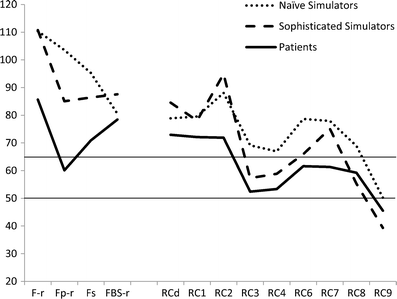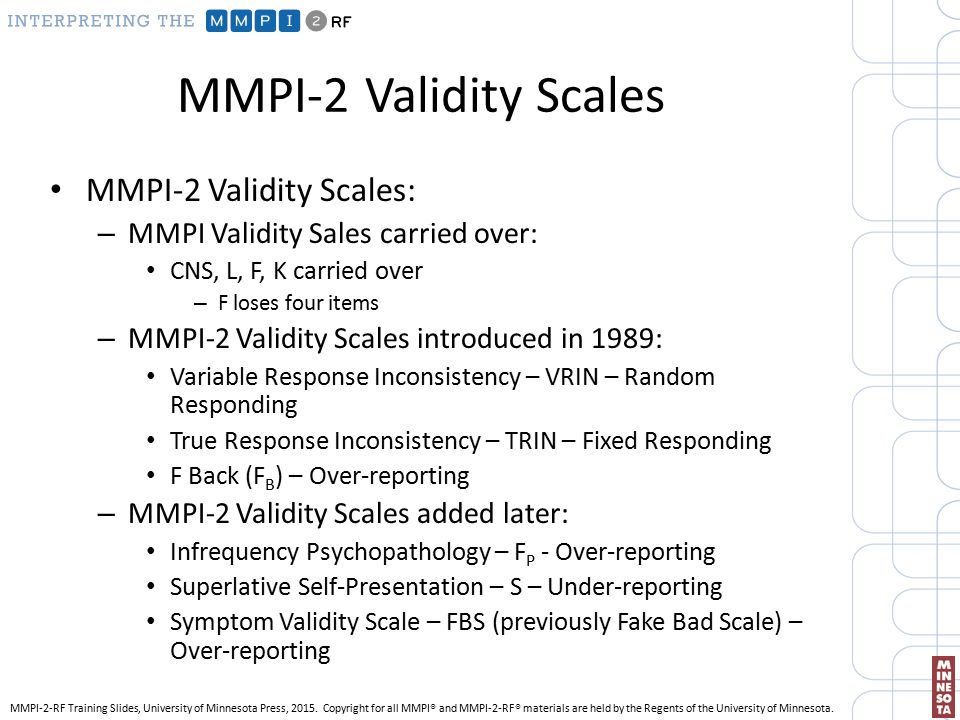

The FBS is based on its authors premise that a substantial number of clinicians and plaintiffs attorneys coach claimants in advance of independent medical evaluations to create false claims. According to the scales developers, In the personal injury context, malingering is pretending to be more distressed, more impaired, or more disabled than one is (p. 1989) items to detect malingerers in personal injury cases (Lees-Haley et al. Malingering Introduction The Fake Bad Scale (FBS) was developed using the Minnesota Multiphasic Personality Inventory (MMPI Butcher et al. Psychologists using the FBS for making decisions about clients motivations need to be aware of the serious problems with the scale s use and the cases of its inadmissibility in court. We raise questions about its potential bias against people with disabilities and physical illnesses, women, individuals exposed to highly traumatic situations, and those motivated to present themselves in a favorable light. Kally hearing in Florida where the FBS was excluded from expert testimony, one of three so far. Kally Remuda Programs for Eating Disorders, Wickenburg, AZ, USA E. Gass Miami Veterans Affairs Healthcare System, Miami, FL, USA E. Williams University of Minnesota, Minneapolis, MN, USA C. We examine: (1) questions of item bias in the FBS (2) how malingering and nonmalingering groups are identified in FBS studies, including whether the research has been broadly inclusive and fully represents the populations assessed by the MMPI- 2 (3) the reliability and validity of the FBS (4) the highly variable recommendations for raw score cut-offs and how they relate to T scores (5) two inpatient groups who may be inappropriately labeled as malingering by the FBS (6) the publisher s statement on use of the FBS and (7) a Frye J. Williams Received: 17 November 2007 / Accepted: 17 December 2007 # Springer Science + Business Media, LLC 2008 Abstract The Fake Bad Scale (FBS), developed to identify malingering of emotional distress among claimants seeking compensation for personal injuries, was recently added to the MMPI-2 scoring materials, resulting in its widespread dissemination across the various clinical settings that use the MMPI-2 in psychological evaluations. Gass & Edward Cumella & Zina Kally & Carolyn L. Psychological Injury and Law Springer Journals 1 DOI /s z ASSESSMENT Potential for Bias in MMPI-2 Assessments Using the Fake Bad Scale (FBS) James N. We end with a challenge to other psychologists to fully examine the underlying FBS research before adopting this scale in their clinical practice. (Psychol Inj and Law 1(3):191–209, 2008) and identifies eight logical fallacies relevant to the FBS controversy.

This reply corrects some of Ben-Porath and colleagues’ (Psychol Inj Law 2:62–85, 2009) multiple misrepresentations of the points made in Butcher et al.

(Psychol Inj Law 2:62–85, 2009) dismissed all the concerns raised in it with suggestions that our conclusions were based on faulty premises, misunderstandings of basic concepts, misleading descriptions of Minnesota Multiphasic Personality Inventory (MMPI) research, flawed analyses, and so on. In a response to this article, Ben-Porath et al. (Psychol Inj and Law 1(3):191–209, 2008) pointed out examples of errors in some of the most widely cited studies (including meta-analytic) used to support the FBS and described potential biases if the FBS is used to impute the motivation to malinger in those reaching its variable and imprecise cutoff scores. (Psychol Inj and Law 1(3):191–209, 2008) concluded that the Fake Bad Scale (FBS) does not appear to be a sufficiently reliable or valid measure of the construct “faking bad”. Williams, Carolyn Butcher, James Gass, Carlton Cumella, Edward Kally, Zinaīased on a focused review and careful analysis of a large amount of published research, Butcher et al. Inaccuracies About the MMPI-2 Fake Bad Scale in the Reply by Ben-Porath, Greve, Bianchini, and Kaufman (2009) Inaccuracies About the MMPI-2 Fake Bad Scale in the Reply by Ben-Porath, Greve, Bianchini, and.


 0 kommentar(er)
0 kommentar(er)
